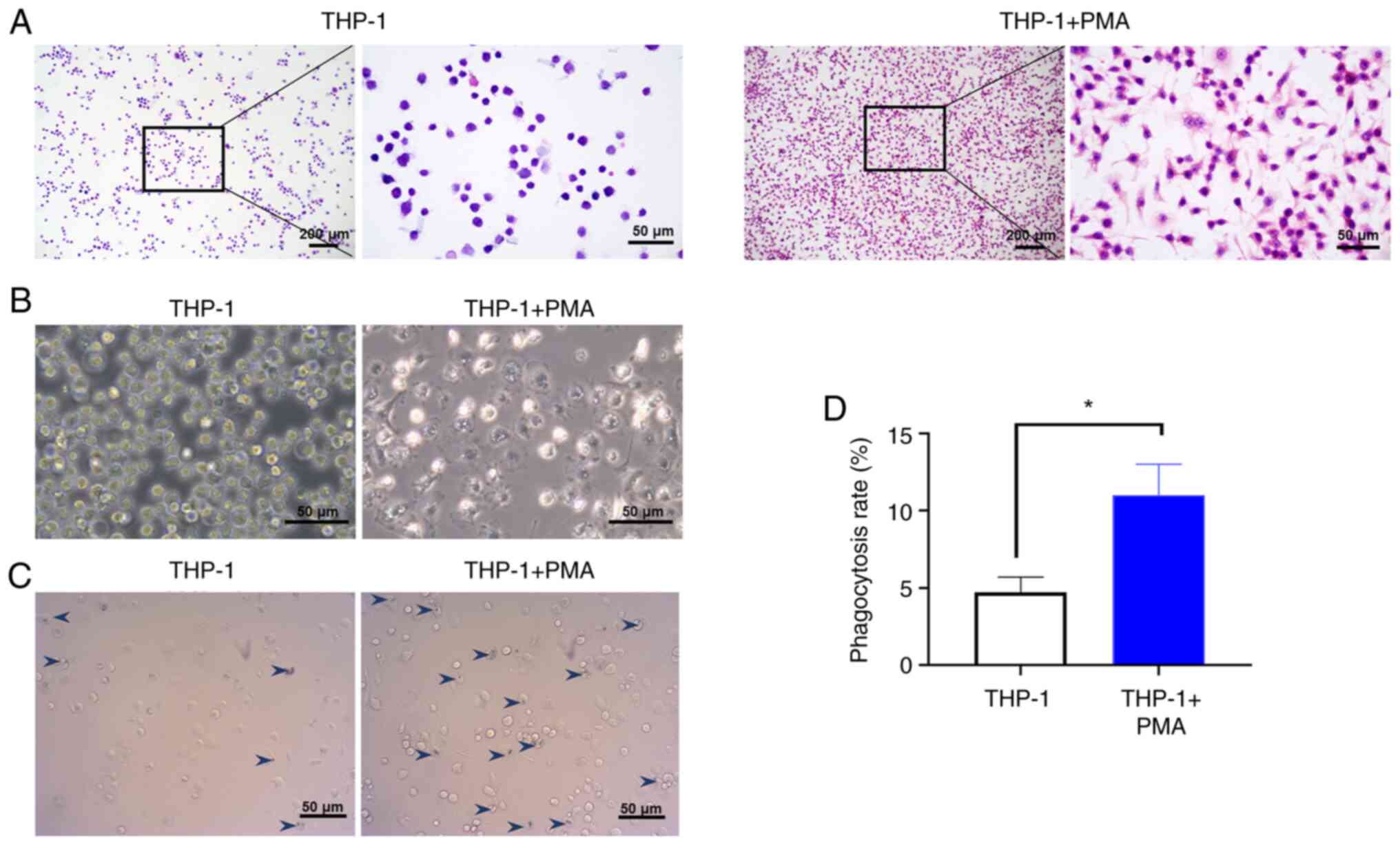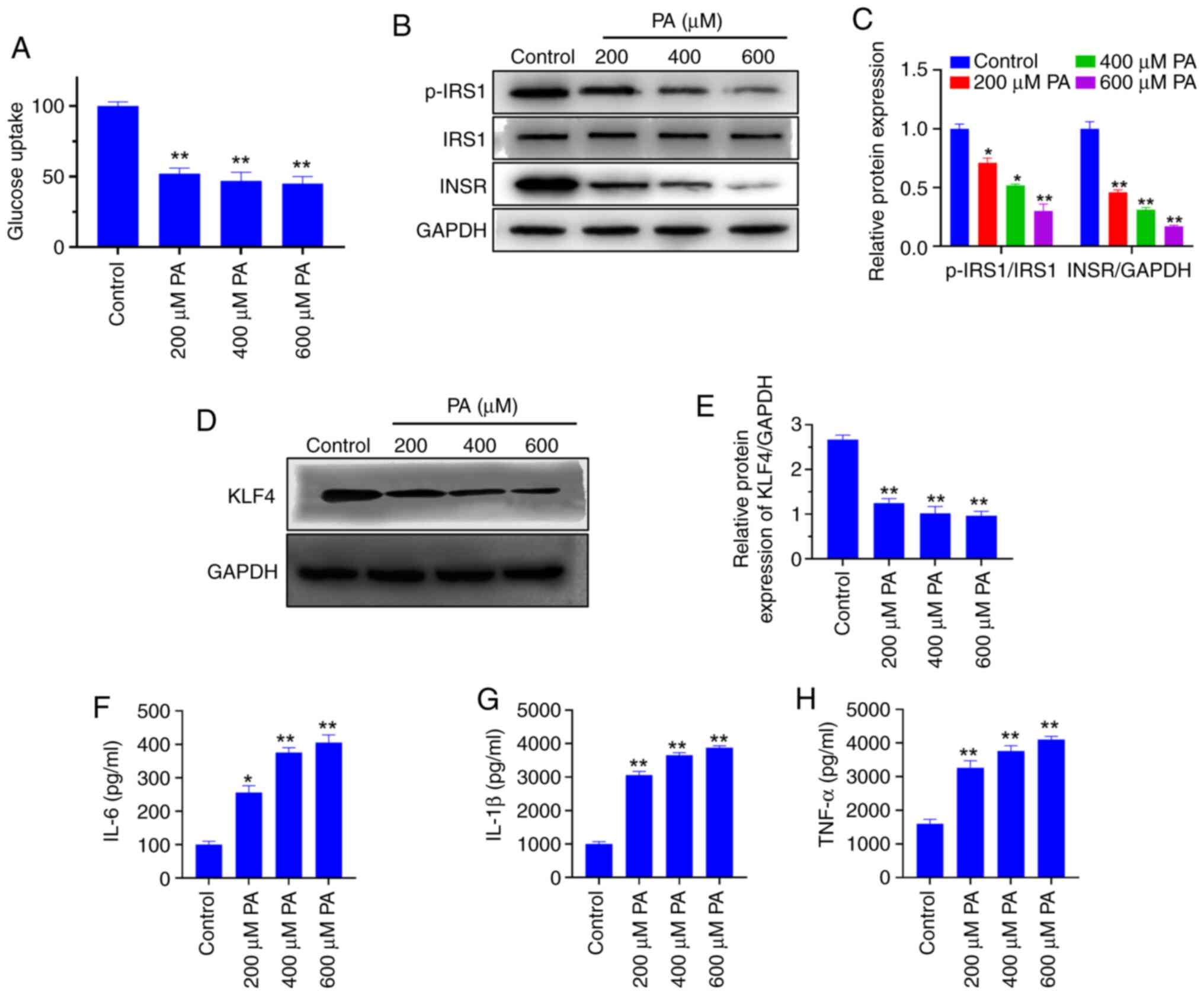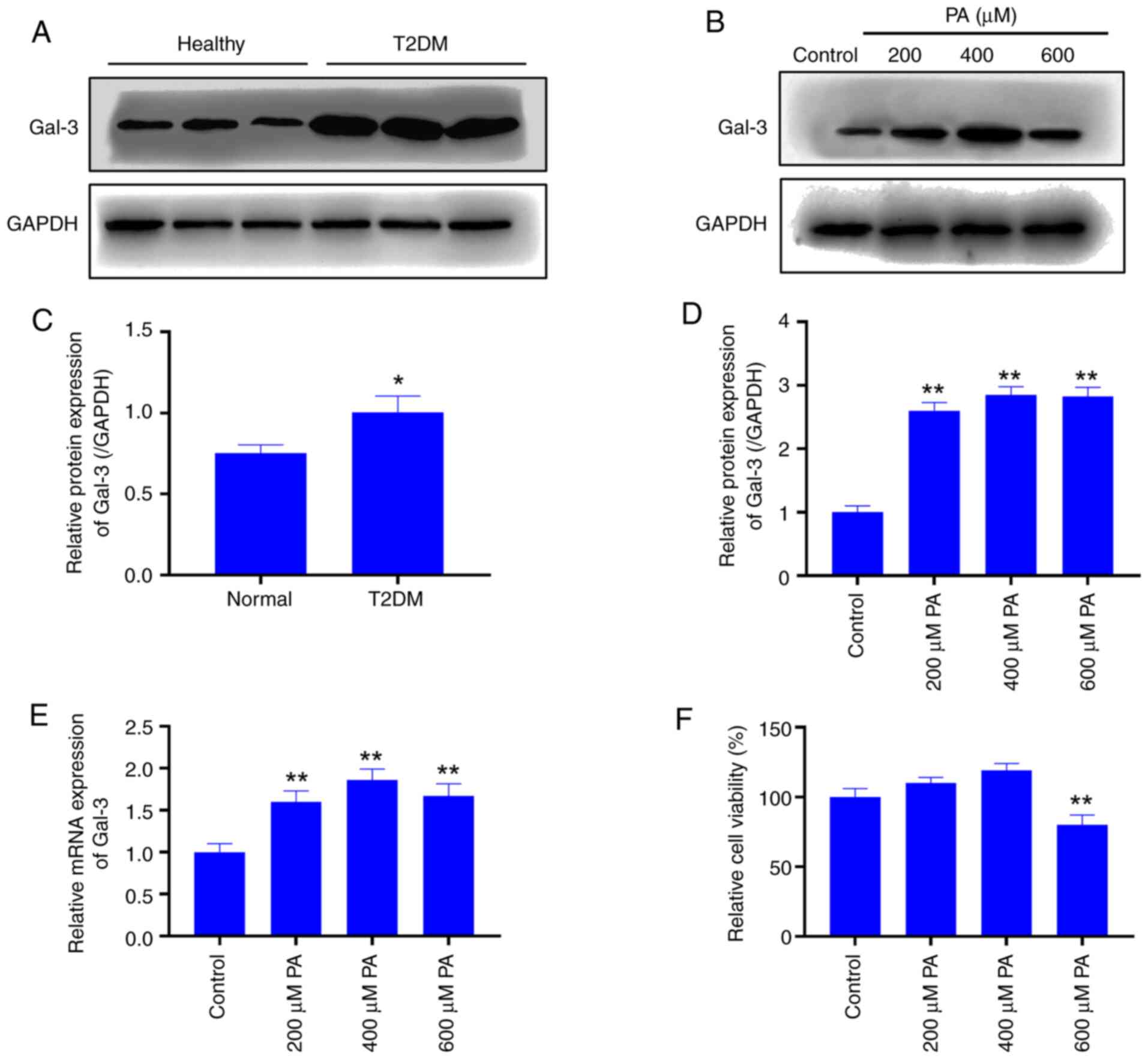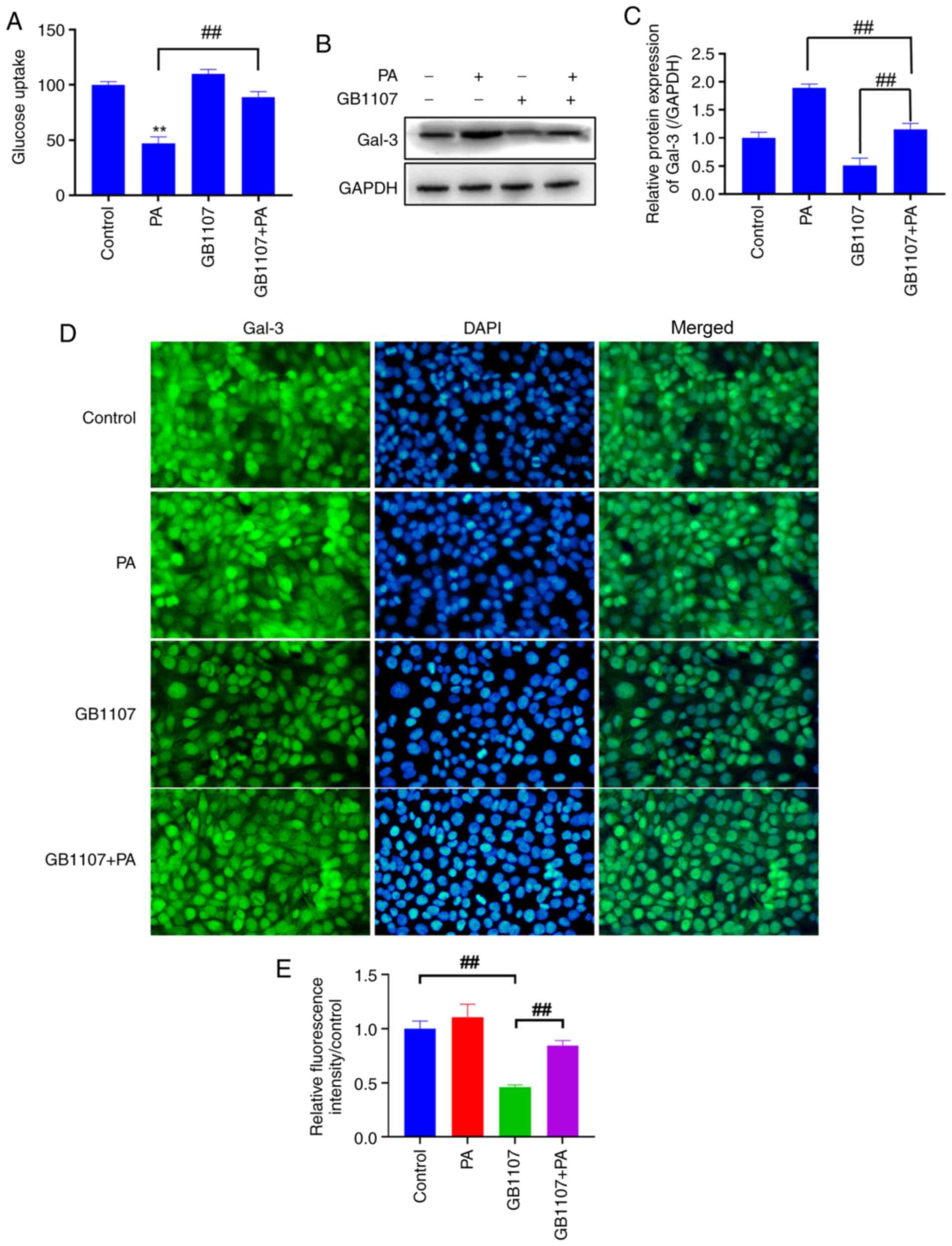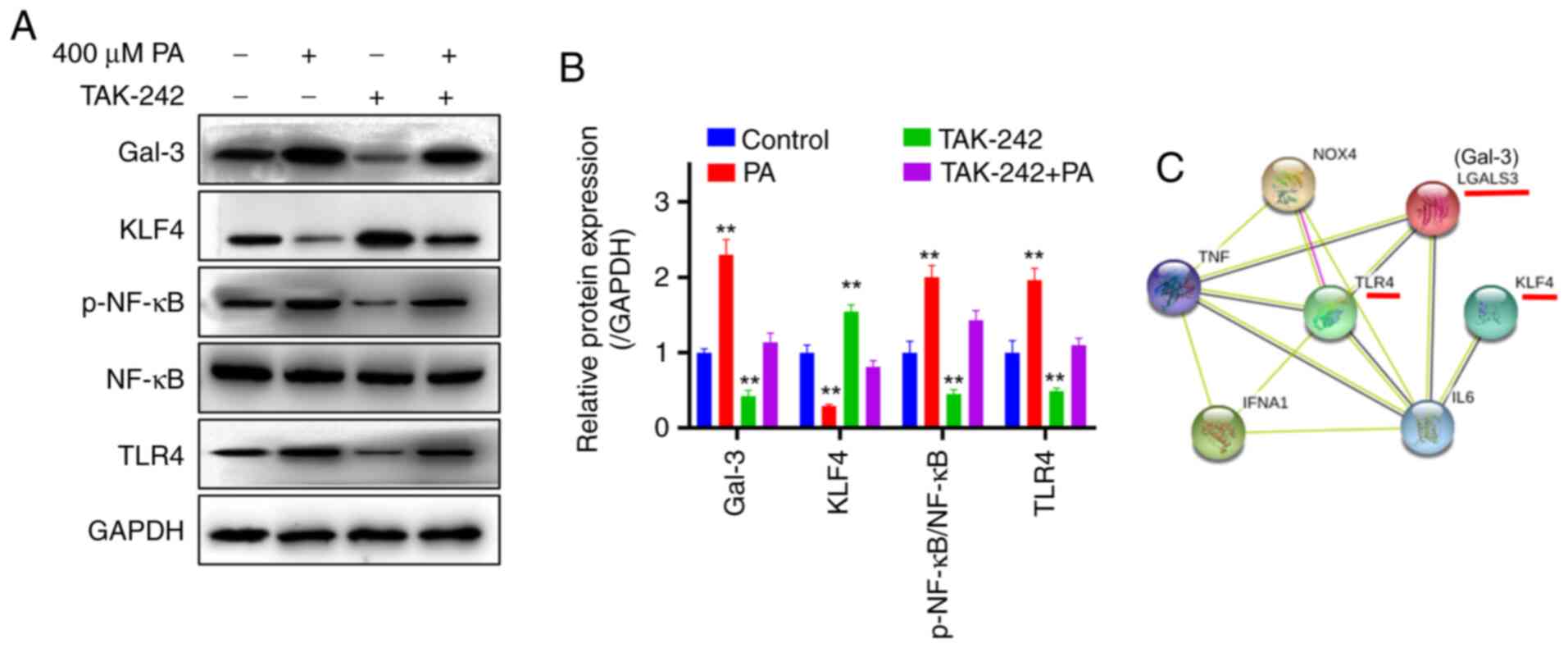|
1
|
Wang Y, Yan A, Li S, Liu B, Li H and Yan
Y: Efficacy and safety of berberine in the treatment of type 2
diabetes with insulin resistance: Protocol for a systematic review.
Medicine (Baltimore). 98(e16947)2019.PubMed/NCBI View Article : Google Scholar
|
|
2
|
Nanditha A, Ma RC, Ramachandran A,
Snehalatha C, Chan JC, Chia KS, Shaw JE and Zimmet PZ: Diabetes in
Asia and the Pacific: Implications for the global epidemic.
Diabetes Care. 39:472–485. 2016.PubMed/NCBI View Article : Google Scholar
|
|
3
|
Hu C and Jia W: Diabetes in China:
Epidemiology and genetic risk factors and their clinical utility in
personalized medication. Diabetes. 67:3–11. 2018.PubMed/NCBI View Article : Google Scholar
|
|
4
|
Wang YF, Sun MX, Xue H, Zhao WH, Yang XG,
Zhu XY, Zhao L and Yang YX: Understanding the China blue paper on
obesity prevention and control and policy implications and
recommendations for obesity prevention and control in China.
Zhonghua Yu Fang Yi Xue Za Zhi. 53:875–884. 2019.PubMed/NCBI View Article : Google Scholar : (In Chinese).
|
|
5
|
Qin X, Zhao Y, Gong J, Huang W, Su H, Yuan
F, Fang K, Wang D, Li J, Zou X, et al: Berberine protects
glomerular podocytes via inhibiting drp1-mediated mitochondrial
fission and dysfunction. Theranostics. 9:1698–1713. 2019.PubMed/NCBI View Article : Google Scholar
|
|
6
|
Lee YS, Kim JW, Osborne O, Oh DY, Sasik R,
Schenk S, Chen A, Chung H, Murphy A, Watkins SM, et al: Increased
adipocyte O2 consumption triggers HIF-1α, causing inflammation and
insulin resistance in obesity. Cell. 157:1339–1352. 2014.PubMed/NCBI View Article : Google Scholar
|
|
7
|
Siwicki M, Engblom C and Pittet MJ: Gal3
links inflammation and insulin resistance. Cell Metab. 24:655–656.
2016.PubMed/NCBI View Article : Google Scholar
|
|
8
|
Cimini FA, Barchetta I, Ciccarelli G,
Leonetti F, Silecchia G, Chiappetta C, Di Cristofano C, Capoccia D,
Bertoccini L, Ceccarelli V, et al: Adipose tissue remodelling in
obese subjects is a determinant of presence and severity of fatty
liver disease. Diabetes Metab Res Rev. 37(e3358)2021.PubMed/NCBI View Article : Google Scholar
|
|
9
|
Hotamisligil GS, Shargill NS and
Spiegelman BM: Adipose expression of tumor necrosis factor-alpha:
Direct role in obesity-linked insulin resistance. Science.
259:87–91. 1993.PubMed/NCBI View Article : Google Scholar
|
|
10
|
Nieto-Vazquez I, Fernandez-Veledo S,
Krämer DK, Vila-Bedmar R, Garcia-Guerra L and Lorenzo M: Insulin
resistance associated to obesity: The link TNF-alpha. Arch Physiol
Biochem. 114:183–194. 2008.PubMed/NCBI View Article : Google Scholar
|
|
11
|
Tesz GJ, Guilherme A, Guntur KV, Hubbard
AC, Tang X, Chawla A and Czech MP: Tumor necrosis factor alpha
(TNFalpha) stimulates Map4k4 expression through TNFalpha receptor 1
signaling to c-Jun and activating transcription factor 2. J Biol
Chem. 282:19302–19312. 2007.PubMed/NCBI View Article : Google Scholar
|
|
12
|
Brady NJ, Chuntova P and Schwertfeger KL:
Macrophages: Regulators of the inflammatory microenvironment during
mammary gland development and breast cancer. Mediators Inflamm.
2016(4549676)2016.PubMed/NCBI View Article : Google Scholar
|
|
13
|
Nicholas DA, Zhang K, Hung C, Glasgow S,
Aruni AW, Unternaehrer J, Payne KJ, Langridge W and De Leon M:
Palmitic acid is a toll-like receptor 4 ligand that induces human
dendritic cell secretion of IL-1β. PLoS One.
12(e0176793)2017.PubMed/NCBI View Article : Google Scholar
|
|
14
|
Loh K, Deng H, Fukushima A, Cai X, Boivin
B, Galic S, Bruce C, Shields BJ, Skiba B, Ooms LM, et al: Reactive
oxygen species enhance insulin sensitivity. Cell Metab. 10:260–272.
2009.PubMed/NCBI View Article : Google Scholar
|
|
15
|
Bes-Houtmann S, Roche R, Hoareau L,
Gonthier MP, Festy F, Caillens H, Gasque P, d'Hellencourt CL and
Cesari M: Presence of functional TLR2 and TLR4 on human adipocytes.
Histochem Cell Biol. 127:131–137. 2007.PubMed/NCBI View Article : Google Scholar
|
|
16
|
Shi H, Kokoeva MV, Inouye K, Tzameli I,
Yin H and Flier JS: TLR4 links innate immunity and fatty
acid-induced insulin resistance. J Clin Invest. 116:3015–3025.
2006.PubMed/NCBI View
Article : Google Scholar
|
|
17
|
Li P, Liu S, Lu M, Bandyopadhyay G, Oh D,
Imamura T, Johnson A, Sears D, Shen Z, Cui B, et al:
Hematopoietic-derived galectin-3 causes cellular and systemic
insulin resistance. Cell. 167:973–984. 2016.PubMed/NCBI View Article : Google Scholar
|
|
18
|
Johnson A, Hou S and Li P: Inflammation
and insulin resistance: New targets encourage new thinking:
Galectin-3 and LTB4 are pro-inflammatory molecules that
can be targeted to restore insulin sensitivity. Bioessays.
39(10.1002)2017.PubMed/NCBI View Article : Google Scholar
|
|
19
|
Livak KJ and Schmittgen TD: Analysis of
relative gene expression data using real-time quantitative PCR and
the 2(-Delta Delta C(T)) method. Methods. 25:402–408.
2001.PubMed/NCBI View Article : Google Scholar
|
|
20
|
Ren Z, Liang W, Sheng J, Xun C, Xu T, Cao
R and Sheng W: Gal-3 is a potential biomarker for spinal cord
injury and Gal-3 deficiency attenuates neuroinflammation through
ROS/TXNIP/NLRP3 signaling pathway. Biosci Rep.
39(BSR20192368)2019.PubMed/NCBI View Article : Google Scholar
|
|
21
|
Huh JY, Park YJ, Ham M and Kim JB:
Crosstalk between adipocytes and immune cells in adipose tissue
inflammation and metabolic dysregulation in obesity. Mol Cells.
37:365–371. 2014.PubMed/NCBI View Article : Google Scholar
|
|
22
|
Zhang M, Zhou Z, Wang J and Li S: MiR-130b
promotes obesity associated adipose tissue inflammation and insulin
resistance in diabetes mice through alleviating M2 macrophage
polarization via repression of PPAR-γ. Immunol Lett. 180:1–8.
2016.PubMed/NCBI View Article : Google Scholar
|
|
23
|
Odegaard JI and Chawla A: Mechanisms of
macrophage activation in obesity-induced insulin resistance. Nat
Clin Pract Endocrinol Metab. 4:619–626. 2008.PubMed/NCBI View Article : Google Scholar
|
|
24
|
Sasidhar MV, Chevooru SK, Eickelberg O,
Hartung HP and Neuhaus O: Downregulation of monocytic
differentiation via modulation of CD147 by
3-hydroxy-3-methylglutaryl coenzyme A reductase inhibitors. PLoS
One. 12(e0189701)2017.PubMed/NCBI View Article : Google Scholar
|
|
25
|
Kapellos TS, Taylor L, Lee H, Cowley SA,
James WS, Iqbal AJ and Greaves DR: A novel real time imaging
platform to quantify macrophage phagocytosis. Biochem Pharmacol.
116:107–119. 2016.PubMed/NCBI View Article : Google Scholar
|
|
26
|
Talbot NA, Wheeler-Jones CP and Cleasby
ME: Palmitoleic acid prevents palmitic acid-induced macrophage
activation and consequent p38 MAPK-mediated skeletal muscle insulin
resistance. Mol Cell Endocrinol. 393:129–142. 2014.PubMed/NCBI View Article : Google Scholar
|
|
27
|
Medina EA, Morris IR and Berton MT:
Phosphatidylinositol 3-kinase activation attenuates the
TLR2-mediated macrophage proinflammatory cytokine response to
Francisella tularensis live vaccine strain. J Immunol.
185:7562–7572. 2010.PubMed/NCBI View Article : Google Scholar
|
|
28
|
Orliaguet L, Dalmas E, Drareni K,
Venteclef N and Alzaid F: Mechanisms of macrophage polarization in
insulin signaling and sensitivity. Front Endocrinol (Lausanne).
11(62)2020.PubMed/NCBI View Article : Google Scholar
|
|
29
|
Cipolletta D, Feuerer M, Li A, Kamei N,
Lee J, Shoelson SE, Benoist C and Mathis D: PPAR-γ is a major
driver of the accumulation and phenotype of adipose tissue treg
cells. Nature. 486:549–553. 2012.PubMed/NCBI View Article : Google Scholar
|
|
30
|
Chen L, Chen R, Wang H and Liang F:
Mechanisms linking inflammation to insulin resistance. Int J
Endocrinol. 2015(508409)2015.PubMed/NCBI View Article : Google Scholar
|
|
31
|
Zhu Y, Deng J, Nan ML, Zhang J, Okekunle
A, Li JY, Yu XQ and Wang PH: The interplay between pattern
recognition receptors and autophagy in inflammation. Adv Exp Med
Biol. 1209:79–108. 2019.PubMed/NCBI View Article : Google Scholar
|
|
32
|
Jin L, Ye H, Pan M, Chen Y, Ye B, Zheng Y,
Huang W, Pan S, Shi Z and Zhang J: Kruppel-like factor 4 improves
obesity-related nephropathy through increasing mitochondrial
biogenesis and activities. J Cell Mol Med. 24:1200–1207.
2020.PubMed/NCBI View Article : Google Scholar
|
|
33
|
Wang Z, Liu D, Wang F, Liu S, Zhao S, Ling
EA and Hao A: Saturated fatty acids activate microglia via
toll-like receptor 4/NF-κB signalling. Br J Nutr. 107:229–241.
2012.PubMed/NCBI View Article : Google Scholar
|
|
34
|
Tian H, Liu C, Zou X, Wu W, Zhang C and
Yuan D: miRNA-194 regulates palmitic acid-induced toll-like
receptor 4 inflammatory responses in THP-1 cells. Nutrients.
7:3483–3496. 2015.PubMed/NCBI View Article : Google Scholar
|
|
35
|
Xu D, Liang J, Cui M, Zhang L, Ren S,
Zheng W, Dong X and Zhang B: Saturated fatty acids activate the
inflammatory signalling pathway in schwann cells: Implication in
sciatic nerve injury. Scand J Immunol. 92(e12896)2020.PubMed/NCBI View Article : Google Scholar
|
|
36
|
Kaushik DK, Mukhopadhyay R, Kumawat KL,
Gupta M and Basu A: Therapeutic targeting of krüppel-like factor 4
abrogates microglial activation. J Neuroinflammation.
9(57)2012.PubMed/NCBI View Article : Google Scholar
|
|
37
|
Allen KL, Hamik A, Jain MK and McCrae KR:
Endothelial cell activation by antiphospholipid antibodies is
modulated by kruppel-like transcription factors. Blood.
117:6383–6391. 2011.PubMed/NCBI View Article : Google Scholar
|
|
38
|
Huang H, Wei L, Qin T, Yang N, Li Z and Xu
Z: Circular RNA ciRS-7 triggers the migration and invasion of
esophageal squamous cell carcinoma via miR-7/KLF4 and NF-κB
signals. Cancer Biol Ther. 20:73–80. 2019.PubMed/NCBI View Article : Google Scholar
|
|
39
|
Tetreault MP, Wang ML, Yang Y, Travis J,
Yu QC, Klein-Szanto AJ and Katz JP: Klf4 overexpression activates
epithelial cytokines and inflammation-mediated esophageal squamous
cell cancer in mice. Gastroenterology. 139:2124–2134.
2010.PubMed/NCBI View Article : Google Scholar
|
|
40
|
Luo X, Chen J, Ruan J, Chen Y, Mo X, Xie J
and Lv G: Krüppel-like factor 4 is a regulator of proinflammatory
signaling in fibroblast-like synoviocytes through increased IL-6
expression. Mediators Inflamm. 2016(1062586)2016.PubMed/NCBI View Article : Google Scholar
|
|
41
|
Zhang X, Wang L, Han Z, Dong J, Pang D, Fu
Y and Li L: KLF4 alleviates cerebral vascular injury by
ameliorating vascular endothelial inflammation and regulating tight
junction protein expression following ischemic stroke. J
Neuroinflammation. 17(107)2020.PubMed/NCBI View Article : Google Scholar
|
|
42
|
Wen Y, Lu X, Ren J, Privratsky JR, Yang B,
Rudemiller NP, Zhang J, Griffiths R, Jain MK, Nedospasov SA, et al:
KLF4 in macrophages attenuates TNFα-mediated kidney injury and
fibrosis. J Am Soc Nephrol. 30:1925–1938. 2019.PubMed/NCBI View Article : Google Scholar
|
|
43
|
Liao X, Sharma N, Kapadia F, Zhou G, Lu Y,
Hong H, Paruchuri K, Mahabeleshwar GH, Dalmas E, Venteclef N, et
al: Krüppel-like factor 4 regulates macrophage polarization. J Clin
Invest. 121:2736–2749. 2011.PubMed/NCBI View Article : Google Scholar
|
|
44
|
Henderson NC and Sethi T: The regulation
of inflammation by galectin-3. Immunol Rev. 230:160–171.
2009.PubMed/NCBI View Article : Google Scholar
|















